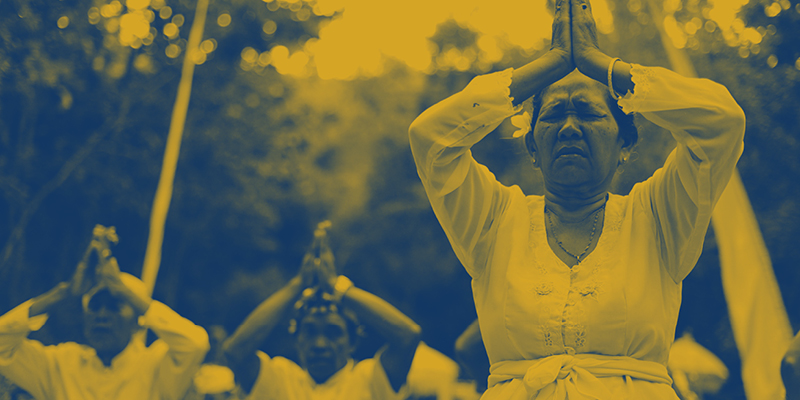University of Leeds at COP27: Research for Climate Action

The United Nations climate change conference – COP27 – begins this week in Sharm El Sheikh, and the Egyptian Presidency’s ambition is for this to be the COP of implementation.
Our participation in COP27 is driven by our commitment to research for climate action. The University of Leeds COP27 delegation represents a range of expertise and voices from our community, tasked with engaging in activities to observe and support the COP negotiations.
Diverse perspectives and voices
The expertise of our delegation for this COP spans from energy governance to carbon storage of the Congo peatlands, from the role of heritage and culture for global change to food transformations, from climate change and health to the role of activist movements.
By sending our delegation of academics, researchers and alumna to the conference in Egypt, we hope to contribute to the diversity of perspectives and voices needed within the COP negotiation processes. Such diversity is essential to ensure that they rapidly lead to climate action that is just, equitable, and grounded in evidence.
It is time to implement climate actions enacted at previous COPs.
Topics of focus for the negotiations
Radical change and political will are urgently required if the 1.5°C target set in the Paris Agreement is to be kept alive. The Egyptian Presidency has focused the goals for COP27 around mitigation, adaptation, finance and collaboration, and the Presidency Programme includes a range of thematic days focused on cross-cutting topics including youth and future generations, agriculture, water and energy.
These thematic days have the potential to highlight the need to take a whole systems approach to tackling the climate crisis and ensure that climate action is implemented with consideration of the many interlinked and intersecting challenges.
Leaders need to forge a multidimensional, human-centric, and just strategy for implementing their climate change commitments immediately.
Enablers of action
Whilst focusing on the big-ticket topics at COP, it critical to remember the role of enablers for implementation and climate action. Leeds research represented by our delegation highlights the need for:
- Consideration of cultural heritage conservation and management, community resilience, and climate action in a single framework.
The centrality of heritage and culture to the United Nations’ Sustainable Development Goals (SDGs), including climate change (SDG 13), is an aspect that has been overlooked for too long, but that constitutes a unique resource for climate action.
- Early and integrated consideration of the broad scale and range of co-benefits and trade-offs of climate adaptation and mitigation actions to incentivise early and appropriate climate action.
Co-benefits can be used to make climate action relevant to a broader range of people – turning climate actions into health, economic, and social responses.
Integration to support implementation
At the University of Leeds and COP27 webinar on 2 November, our delegates were asked ‘What would a successful COP27 outcome look like to you?’ A clear theme emerged: integration is needed across different sectors and actors to promote space and discussions within the negotiations that interlink key issues such as mitigation and adaptation.
I believe that COP27 being in Egypt, as an African and Arab country, is an opportunity for our voices to be heard, especially youth and adolescents.
By integrating across disciplines, both within our institution and with external partners, we can maximise the support we give to the negotiations and subsequent implementation. And, importantly, integration of marginalised groups into processes of governance and implementation, such as women, young people and indigenous communities, valuing the knowledge and lived experience they bring to support the effectiveness and equity of climate action.
This blog was written by Dr Shona Smith, Research and Innovation Development Manager for the Priestley International Centre for Climate. The content is based on the University of Leeds COP27 delegate profiles and their input into our University of Leeds COP27 delegation webinar.
